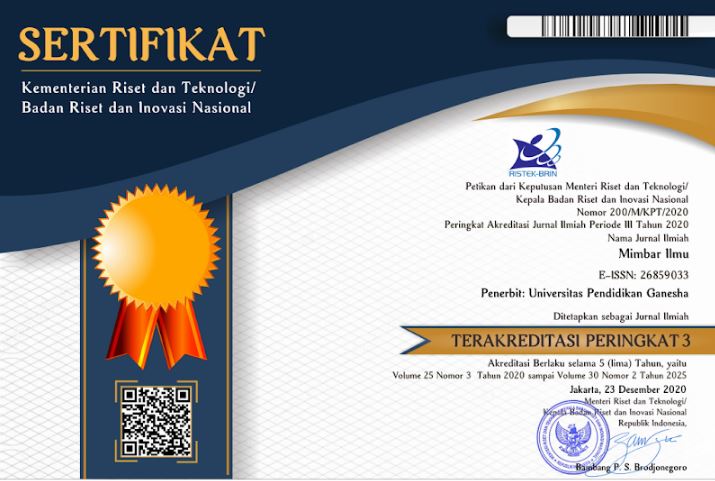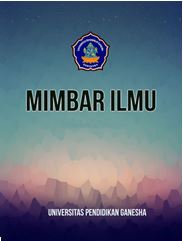Social Studies E-Module Containing Balinese Folk Tales Based on Pancasila Student Profiles for Fourth Grade Elementary School Students
DOI:
https://doi.org/10.23887/mi.v29i2.74836Keywords:
Folklore, Social Science, E-moduleAbstract
Social studies lessons that rely solely on textbooks bore students, leading to unmet learning targets in daily tests. Social studies education aims to help students understand themselves, their social environment, and apply this knowledge in daily life.This study aims to produce, determine the level of feasibility, and determine the effectiveness of social studies e-modules containing Balinese folklore based on Pancasila student profiles for grade IV students in elementary schools. The subjects of this study were 1 subject expert, 1 learning design expert, 1 learning media expert, 1 learning language expert, 3 students for individual trials, and 9 students for small group trials. This study is a development research using the Dick and Carey model. Data collection was carried out using observation, interview, questionnaire and multiple choice test methods. The data analysis techniques used were quantitative descriptive analysis, qualitative and inferential statistical analysis (t-test). The results of the study showed a review of learning content experts of 96.87%, a test of learning media experts of 95%, a test of learning design experts of 100%, a test of learning language experts of 97.5%, an individual trial of 98.3% and a small group trial of 97.2%. It can be concluded that there is a significant difference between before and after using the IPS e-module media with innovations containing Balinese folklore based on the Pancasila student profile. The implications of this study are to make students more active in the learning process, understand local wisdom, and form characters in accordance with Pancasila values.
Published
How to Cite
Issue
Section
License
Copyright (c) 2024 Ni Made Ari Sintya Dewi, I Gusti Agung Ayu Wulandari

This work is licensed under a Creative Commons Attribution-ShareAlike 4.0 International License.
This work is licensed under a Creative Commons Attribution-ShareAlike 4.0 International License.
Authors who publish with this journal agree to the following terms:
- Authors retain copyright and grant the journal right of first publication with the work simultaneously licensed under a Creative Commons Attribution License that allows others to share the work with an acknowledgment of the work's authorship and initial publication in this journal.
- Authors are able to enter into separate, additional contractual arrangements for the non-exclusive distribution of the journal's published version of the work (e.g., post it to an institutional repository or publish it in a book), with an acknowledgment of its initial publication in this journal.
- Authors are permitted and encouraged to post their work online (e.g., in institutional repositories or on their website) prior to and during the submission process, as it can lead to productive exchanges, as well as earlier and greater citation of published work.








